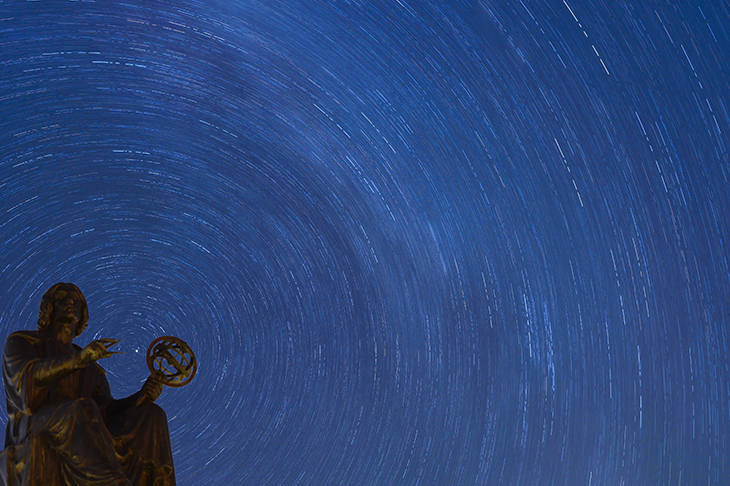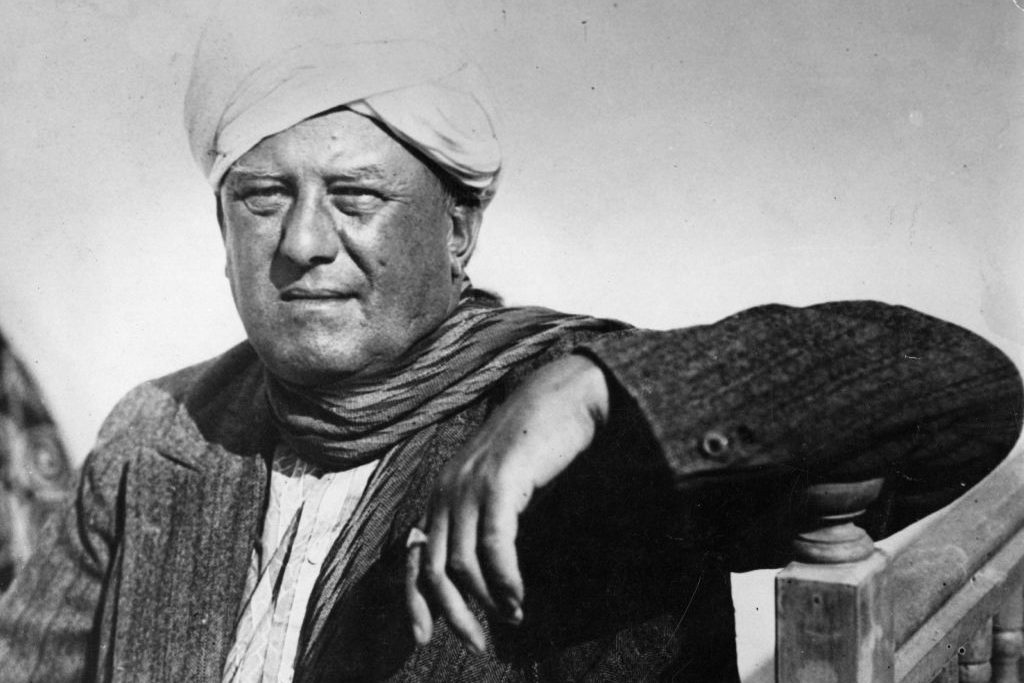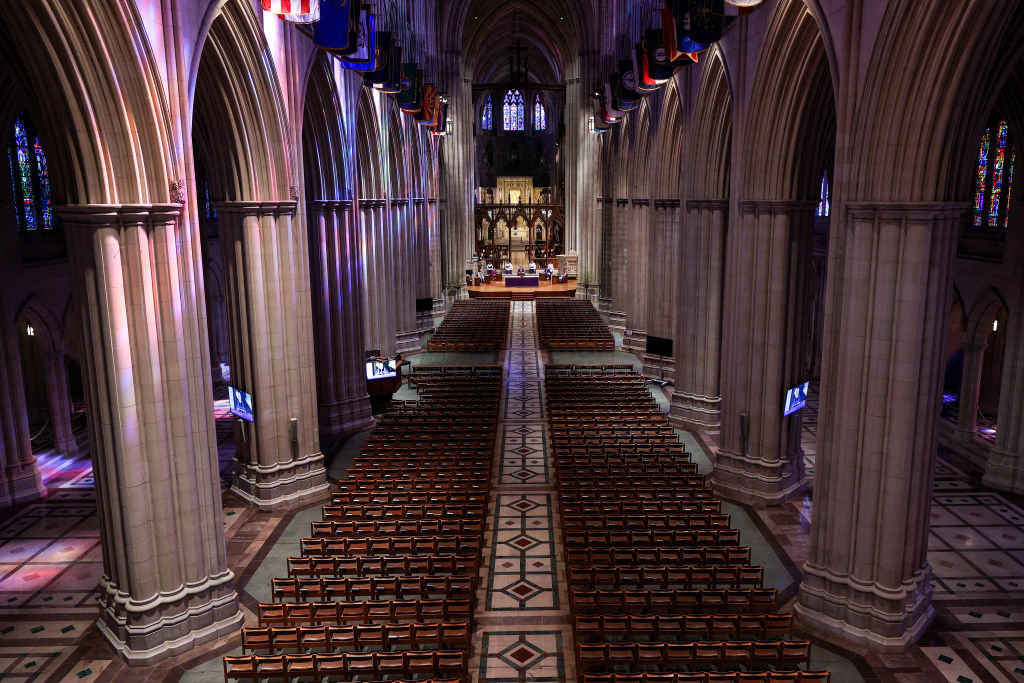Wallace Stevens called it ‘the necessary angel’. Ted Hughes thought it ‘the most essential bit of machinery we have if we are going to live the lives of human beings’. Coleridge described its role a little more vigorously: ‘The living Power and prime Agent of all human perception… a repetition in the finite mind of the eternal act of creation in the infinite I AM’.
The imagination is the subject of Felipe Fernández-Armesto’s latest grand sweep of a book. Not a historian to dwell on individual kings, queens or battles, he has identified the creation of ideas as the driver of history, the imagination as their source and the pool of evidence the past 800,000 years. Even this, he admits, narrows the study because it leaves out non-human thinkers — we know that animals dream. But to compensate, he allows his dog Beau a couple of walk-on appearances.
It’s a compelling thesis, and one that the author takes on with gusto: behind the whole monumental enterprise of human endeavor lies ‘the power of seeing what is not there’. We imagine things, then we strive to create them in the real world:
‘A human can hear a note and compose a symphony, survey a landscape and envision a city, endure frustration and conceive perfection, look at his chains and fancy himself free.’
Three things, he claims, swelled the imaginative faculty in our species. We have poor memories, or rather the tendency to select and distort what we recall. Anticipation, on the other hand, is our great skill; early hominids learned to picture their prey when it was not there, to imagine its movements — and then to develop elaborate strategies for trapping it. Such solutions meant growth in the capacity for idea-making, and have enabled us to overcome the disadvantage of our fairly feeble frame. Language is the third requisite: sharing ever more complicated ideas has required a sophisticated system of communication, while that system, the magic of words, has itself helped the creation of ideas.
What is always impressive about Fernández-Armesto’s work is its astonishing range. In Civilizations, he made the case for the vast array of human culture being a function of differing environmental conditions. Here, beginning with a little ethno-archaeology, paleoanthropology and the latest work on primate ethology, he assembles a solid body of evidence for early man being concerned with far more than the physical necessities of staying alive.
There follows a gallop through the basic forms of belief — totemism, shamanism, animism — and those a little more familiar — Taoism, Hinduism and the three great monotheisms. Each relies on non-empirical ideas, the workings of the imagination:
‘Even illusions can do good. They can help to launch notions that encourage endeavor in transcendence, magic, religion and science. They nourish arts. They can make ideas unattainable by experience — such as eternity, infinity and immortality — conceivable.’
And on through the Renaissance, the age of exploration and the Enlightenment, leaping from continent to continent, from century to century. He has surprises: it was the Little Ice Age and bubonic plague that characterized the period between the 14th and the 18th centuries; the Renaissance should be ditched as a historical term; the 18th century was the Chinese century; and European expansion ‘changed the face of the planet more than any other innovation since the invention of agriculture’ — by causing ‘shifts in biota’. But there are times, too, when the narrative grows somewhat breathless, the central argument disappears and it becomes less an exposition of the idea in history than a straight history of ideas.
In the modern era, Fernández-Armesto’s theory again comes into its own. The past two centuries have been dominated by ‘the search for certainty’. Notions of material progress, the perfectibility of the future, nationalism, social Darwinism, Marxism-Leninism were all developed not simply from what was observed or sensed about the world but what was imagined. The horrors of the 20th century, and the zealous ideologies that led to them, had their origins in 19th-century ideas. In contrast, there emerged from quantum physics the more equivocal notion of relativity, and from ethnography, relativism.
For the past 200 to 300 years, ideas have been in full flow, stimulated by ever-increasing contacts between peoples, and transmitted by accelerating means of communication. Globalization is the result: a fizzing ferment of words and images. The recent response of many, to retreat into populism and chauvinism, brings a fierce rebuke from Fernández-Armesto: ‘Confused by chaos, infantilized by ignorance, refugees from complexity flee to fanaticism and dogma.’ But something else is happening too. Human history was formerly all about divergence; now, as cultural differences are eroded, we are converging. The result, according to his hypothesis, will in the end be a slowing down of the imagination and ideas.
As a historian, Fernández-Armesto is concerned with the collective, with the fortunes of states, the exercise of power, with religion and economics. His case for the role of ideas is persuasive in this context, but he largely ignores the place where the imagination has been most productive — in the individual, in the privacy of those creative leaps that produce great art and scientific advance.
He is never less than stimulating. As a product himself of the liberal and skeptical decades of the later 20th century, there is a sense in his writing not of tenacious advocacy but a certain playfulness. All ideas — including his own — are stabs at understanding, part of the process that defines our species, the perennial urge to make sense of the world around us.
This article was originally published in The Spectator magazine.

























